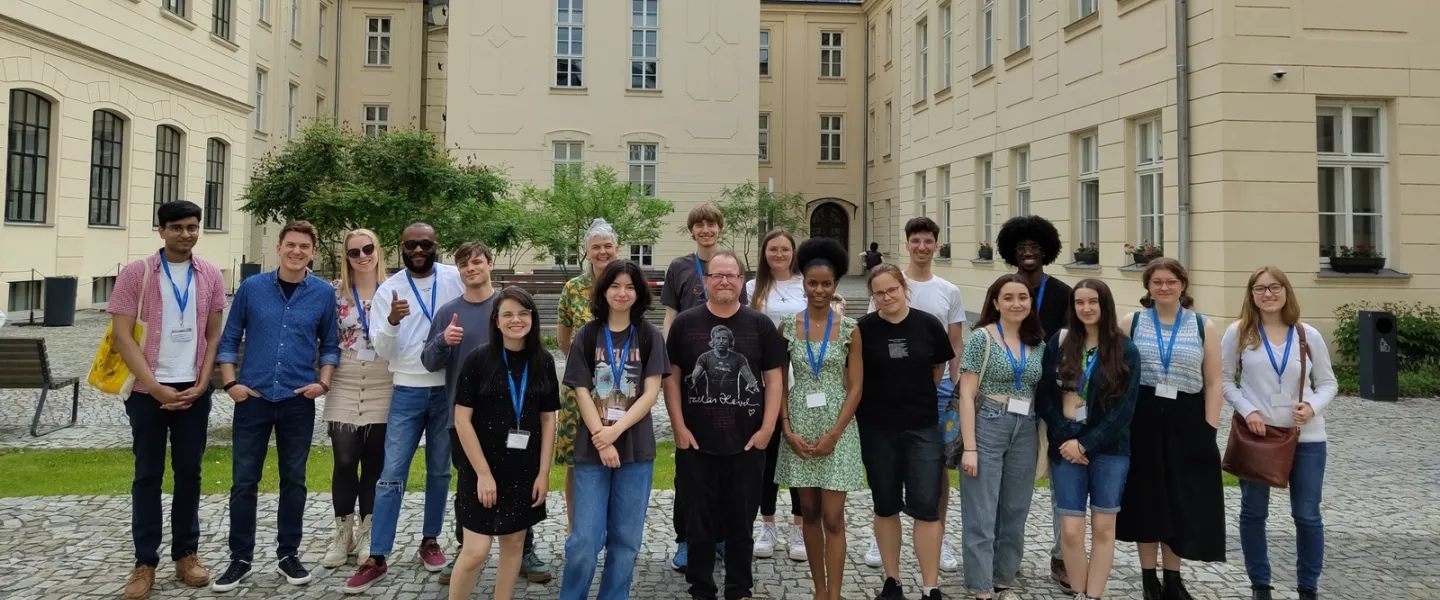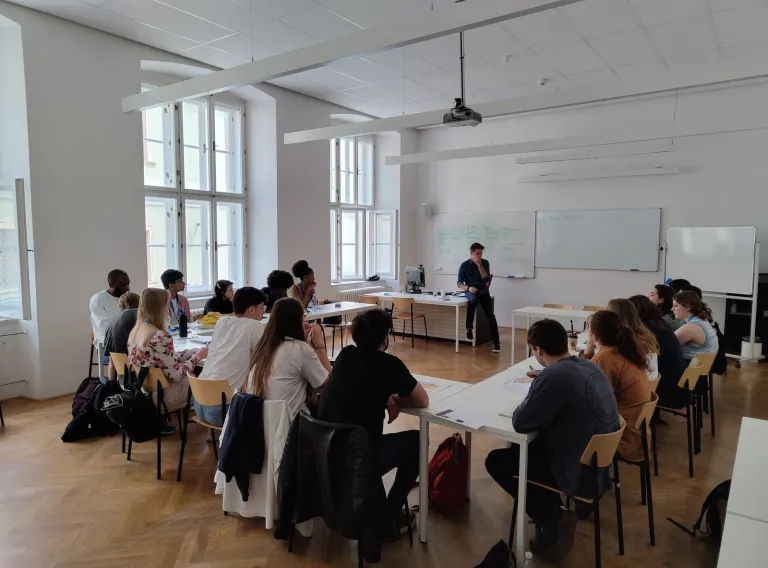
A week-long journey to the heart of creative writing concluded successfully for four University of Iceland students who traveled to Olomouc in Czechia, funded by the Aurora University Network.
AURORA is a network of European research universities collaborating to shape the future of higher education. It is driven by systematic pedagogical development and innovation, aiming to equip students with competencies needed for thriving future generations. The recent Creative Writing Workshop at Palacky University was a part of this initiative.
The University of Iceland was proud to participate alongside the University of East Anglia, University of Duisburg-Essen, and Palacky University, with each institution sending students to take part in the immersive workshop. For a week, the city of Olomouc became a hub of literary exploration, where students from different cultures and academic backgrounds came together to develop their prose, poetry, and character writing skills. Many students were aspiring to careers in writing, while others were looking to incorporate or experiment with creative styles of writing to improve the skill and reach of their voice as communicators, leading to a great diversity of styles and ideas that all benefitted from.
Each day of the workshop was structured around various writing exercises, curated meticulously to foster creativity and innovation among the students. The participants had the opportunity to dive deep into their thoughts and emotions, refining their unique literary voices. As part of the process, the students had the opportunity to read some of their writings in small groups, where they received valuable feedback from both professors and fellow workshop participants.
